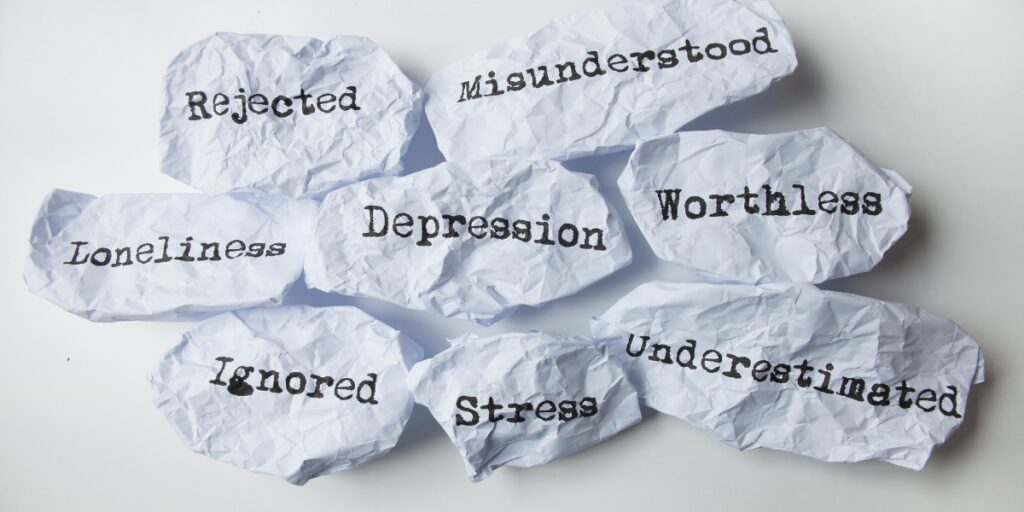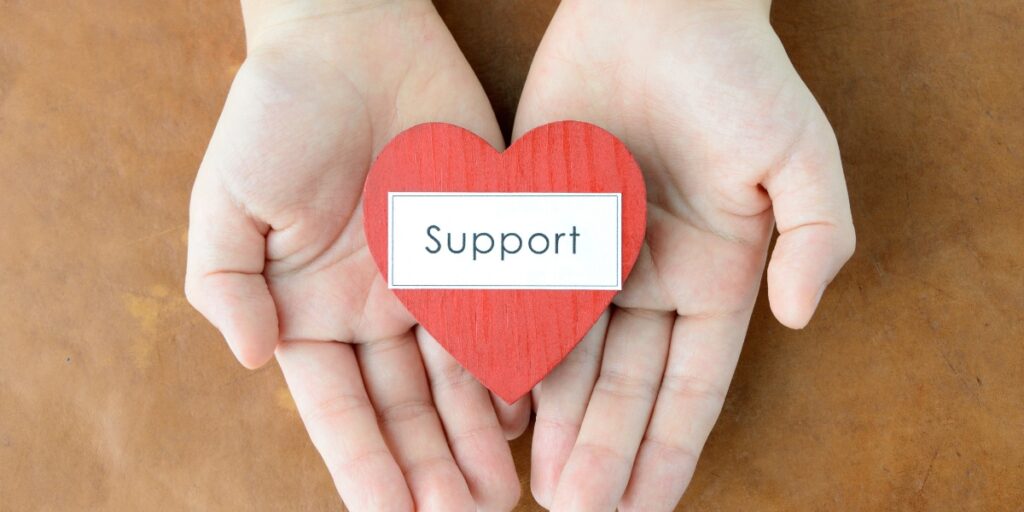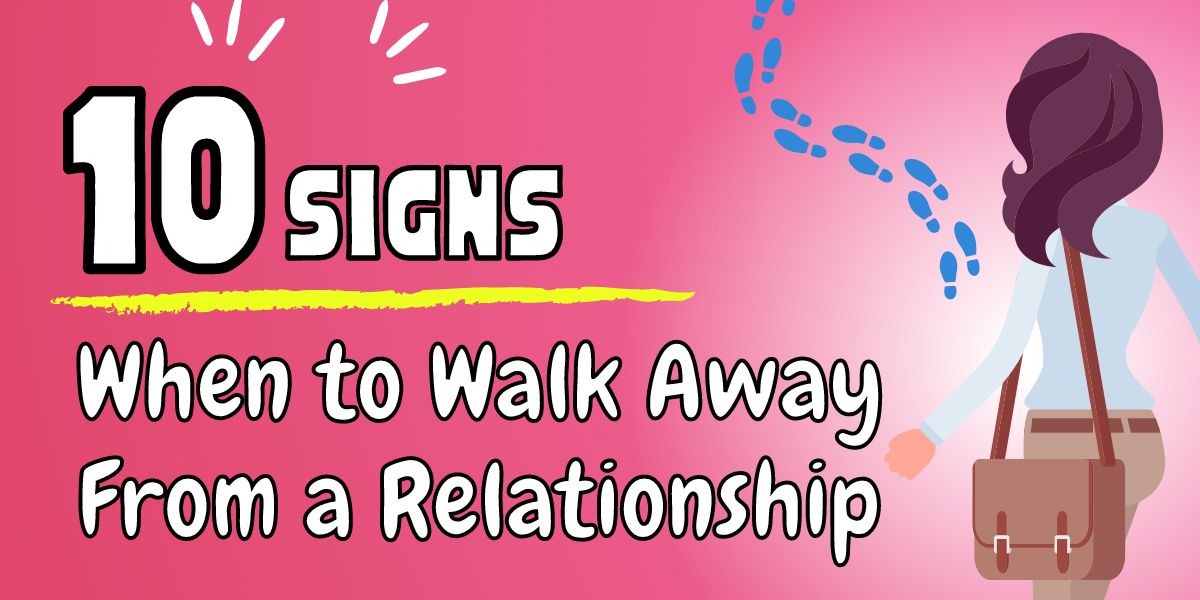In the intricate dance of love and relationships, understanding when to nurture a connection and when to let it go is crucial for your well-being and happiness. Relationships are meant to be supportive, fulfilling, and growth-oriented. However, there are times when walking away may be the best decision you can make. Here are ten vital signs that signal it might be time to reevaluate your relationship.
When to Walk Away From a Relationship
1. Lack of Trust

Trust is the foundation of any healthy and lasting relationship. When trust is consistently broken—whether through lies, secrets, or broken promises—it can create a toxic environment that is difficult to navigate.
If you find yourself constantly questioning your partner’s honesty and integrity, it might be a sign to consider moving on. Rebuilding trust is a challenging process that requires time, effort, and mutual commitment, and sometimes, it’s just not possible. The emotional toll of distrust can be overwhelming, affecting your mental health and overall well-being.
2. Constant Negativity

Relationships should bring joy, positivity, and a sense of fulfillment to your life. If your relationship feels more like an emotional drain than a source of happiness, it may be time to think about moving on.
Persistent negativity can manifest in various ways, such as continuous arguments, relentless criticism, or a general feeling of dissatisfaction. These negative patterns can erode the quality of the relationship over time. Surrounding yourself with positive influences that uplift you is essential for maintaining a healthy and happy life.
3. Change in Life Goals

As we grow and evolve, our goals, values, and aspirations might change. When partners’ life goals begin to significantly misalign, it can create a rift in the relationship that is difficult to bridge.
Whether it’s differences in career aspirations, lifestyle choices, or family planning, incompatible future visions can be a strong indicator that it’s time to move on. Shared goals and values are vital for a harmonious and sustainable relationship, as they provide a common direction and purpose that strengthens the bond between partners.
4. Emotional or Physical Abuse
No form of abuse should ever be tolerated in a healthy relationship. Emotional abuse, which can include manipulation, humiliation, and controlling behavior, can be just as damaging as physical abuse, eroding your self-esteem and overall well-being.
If you’re experiencing any form of abuse, it’s crucial to prioritize your safety and seek support from friends, family, or professional resources. Walking away from an abusive relationship is a brave and necessary step toward reclaiming your life and happiness. Remember, you deserve to be in a relationship where you feel safe, respected, and valued.
5. Different Communication Styles

Effective communication is the backbone of a successful relationship. When partners have vastly different communication styles, it can lead to frequent misunderstandings and emotional distance. Struggles in expressing feelings, active listening, and resolving conflicts can create a significant barrier in the relationship.
If efforts to improve communication continually fail, it may be a sign that the partnership is not sustainable. Investing in understanding and adapting to each other’s communication preferences can sometimes help, but both partners must be willing to make those efforts.
6. Feeling Stagnant
A thriving relationship should promote growth, evolution, and personal development for both partners. If you feel that your relationship is stagnant and no longer growing, it may be time to seek new opportunities that foster growth.
Feeling stuck can lead to resentment, dissatisfaction, and a lack of motivation, preventing both partners from reaching their full potential. Embrace change and look for environments and relationships that encourage and inspire personal and relational growth, allowing you to become the best version of yourself.
7. Lack of Support

Partners should be each other’s biggest supporters, cheering for successes and providing comfort during tough times. If your partner is unsupportive, dismissive, or indifferent to your needs and aspirations, it’s a red flag that cannot be ignored.
A lack of support can feel isolating and hinder your personal and professional growth. Surround yourself with people who genuinely care about your well-being and endeavor to uplift you. Your partner should be someone who celebrates your achievements and stands by you through challenges, reinforcing the strength of your bond.
8. Infidelity

Infidelity can severely damage the foundation of a relationship, often leaving deep emotional scars. Repeated or unapologetic infidelity often indicates a lack of respect, commitment, and regard for the relationship.
Trust is difficult to rebuild after betrayal, and ongoing infidelity can cause deep emotional wounds that are hard to heal. Recognize your worth and understand that you deserve loyalty, respect, and honesty in a relationship. Moving on from a partner who has been unfaithful can be a step toward finding a relationship that aligns with your values and expectations.
9. No Personal Growth
A healthy relationship should encourage and inspire personal growth, fostering an environment where both partners can thrive. If you feel that your relationship stifles your self-improvement, creativity, or independence, it might be time to reconsider its viability. Being with someone who supports your growth and allows you to flourish individually is essential for long-term happiness and fulfillment. Personal growth is a continuous journey, and having a partner who nurtures and supports that journey can make a significant difference in your overall quality of life.
10. Trusting Your Gut
Sometimes, the most profound wisdom comes from within. Trusting your instincts and realizing when you deserve better is crucial for your well-being. If something feels off or you continually doubt the viability of the relationship, listen to your gut.
Your intuition often knows what your mind struggles to accept. Trust yourself to make the best decision for your happiness and long-term well-being. Remember, you have the inner strength and wisdom to choose what is best for you, even if it means walking away from a relationship that no longer serves you.
Conclusion
Understanding when to walk away from a relationship is a powerful step toward self-respect and personal growth. By recognizing these signs and prioritizing your well-being, you can make informed decisions that lead to healthier and more fulfilling relationships in the future. Remember, you deserve a relationship that brings out the best in you.
For more insights and advice on building healthy relationships, follow our blog and join our community of empowered individuals seeking better, brighter futures.
You might also be interested in:
How to Get My Husband on My Side: A Guide to Mutual Support in Your Relationship
Taking Control: How to Safely Reject Your Obsessive Ex-Husband


